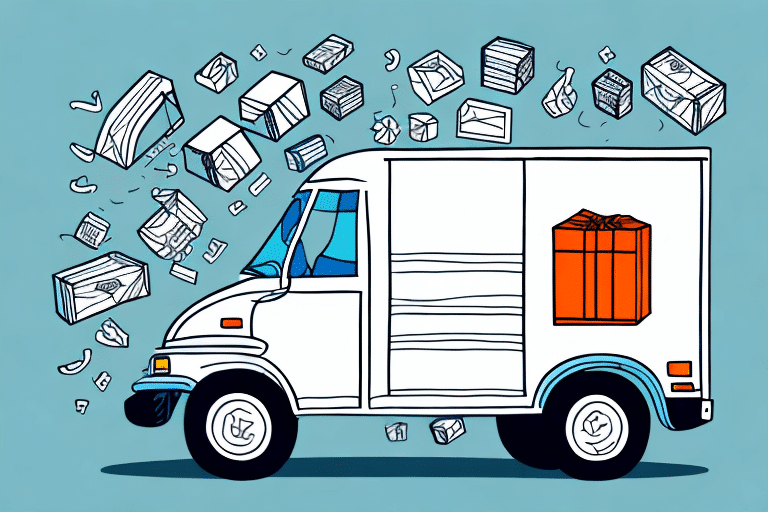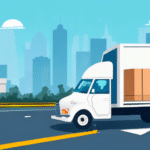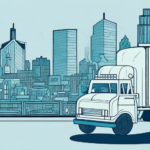Choosing the Right E-Commerce Delivery Agency for Your Business
In today's digital age, e-commerce has become a booming industry. With the growing demand for online shopping, it's essential for businesses to have a reliable and efficient delivery system in place. Selecting the right e-commerce delivery agency is crucial for the success of your business. This guide outlines the key factors to consider when choosing an e-commerce delivery partner.
Key Factors to Consider When Selecting a Delivery Agency
Reputation and Reliability
The reputation of a delivery agency speaks volumes about its service quality. Research the company's history, read reviews and case studies, and consult with other e-commerce business owners who have experience with them. According to a Statista report, over 80% of customers consider reliable delivery a key factor in their shopping experience.
Delivery Network and Technology
Evaluate the agency's delivery network and technological capabilities. Does the agency offer real-time tracking and delivery notifications to your customers? A robust technology infrastructure ensures seamless integration with your existing systems, such as inventory management systems and order processing software, which is essential for efficient operations.
Cost and Pricing Models
While cost is an important factor, it shouldn't be the sole consideration. Analyze the agency's pricing models—whether they are volume-based, weight-based, distance-based, or a combination. Ensure that the pricing aligns with your budget and delivery needs without compromising on service quality. According to Harvard Business Review, effective negotiation can lead to significant cost savings and better service terms.
Customer Support
Exceptional customer support can make a significant difference in your partnership with a delivery agency. Determine if the agency provides a dedicated account manager or a responsive customer service team. Quick and effective support helps resolve issues promptly, ensuring minimal disruption to your business operations. Insights from McKinsey & Company highlight that strong customer support enhances operational efficiency and customer satisfaction.
Environmental Impact
With increasing consumer awareness about sustainability, partnering with an environmentally responsible delivery agency can enhance your brand image. Look for agencies that implement eco-friendly practices, such as using electric vehicles or offsetting their carbon emissions, to reduce your supply chain’s environmental footprint.
Assessing the Reliability of an E-Commerce Delivery Agency
On-Time Delivery and Transit Times
Reliability in delivery is paramount. Examine the agency's on-time delivery rates and transit time estimates. High on-time delivery percentages are crucial for maintaining customer trust and satisfaction. According to a Forbes article, a reliable delivery schedule is essential for sustaining customer loyalty.
Handling Peak Periods
During peak seasons like holidays or sales events, delivery volumes surge. Ensure that the agency can handle increased workloads without compromising delivery standards. Their capacity to manage high volumes efficiently is critical for sustaining business operations during busy periods.
Package Insurance and Protection
Protecting your shipments against loss or damage is vital. Verify that the delivery agency offers comprehensive package insurance policies. This coverage minimizes financial risks and ensures that your customers receive their orders in excellent condition.
Cost and Pricing Models for E-Commerce Delivery Agencies
Understanding Pricing Structures
Different delivery agencies offer various pricing models, including volume-based, weight-based, and distance-based pricing. Understanding these structures helps you choose an agency that aligns with your financial and operational needs. Balancing cost with service quality is key to maintaining profitability and customer satisfaction.
Negotiating Contracts and Terms
Negotiating favorable contract terms can lead to better pricing and service conditions. Ensure transparency in pricing, with clear specifications on cargo types, package sizes, and volumes to avoid disputes. Effective negotiation strategies, as suggested by Harvard Business Review, can result in significant cost savings and improved service terms.
Handling Returns Efficiently
Returns are an inevitable aspect of e-commerce. Choose a delivery agency that offers efficient and cost-effective return handling processes. Understanding their return policies and any associated fees will help you maintain high customer satisfaction while managing costs effectively.
Flexibility and Scalability in E-Commerce Delivery
Adapting to Business Growth
Your delivery agency should be able to scale alongside your business. Whether you're experiencing rapid growth or seasonal fluctuations, the agency must handle increasing package volumes and expanding delivery zones without compromising service quality.
System Integration
Seamless integration with your existing systems—such as your e-commerce platform, inventory management, and order processing software—is essential. This ensures efficient operations, real-time tracking, and minimizes delays or errors in the delivery process.
Service Offerings and Delivery Options
Real-Time Tracking and Notifications
Real-time tracking capabilities provide transparency and reduce customer inquiries about their package statuses. A reliable tracking system enhances customer trust and satisfaction by offering up-to-date information on their orders.
Variety of Delivery Options
Offering multiple delivery options allows customers to choose the most convenient time, location, and frequency for their packages. Flexible delivery options can significantly enhance the customer experience and drive repeat business.
Local vs. National Delivery Agencies
Benefits of Local Agencies
Partnering with local delivery agencies can offer faster delivery times and a deeper understanding of your business operations. Local agencies often have shorter delivery routes, which can reduce transit times and transportation costs.
Environmental Sustainability
Choosing a local agency can also contribute to reducing your carbon footprint by minimizing the distance traveled by delivery vehicles. This aligns with sustainability goals and appeals to environmentally conscious consumers.
Making an Informed Decision
Comparing Different Delivery Agencies
Conduct a thorough comparison of various delivery agencies based on key factors such as the types of packages they handle, delivery timeframes, technology infrastructure, customer service quality, and pricing models. This comprehensive evaluation will help you identify the best fit for your business needs.
Avoiding Common Mistakes
Avoid selecting a delivery agency solely based on cost, as this can lead to missed deliveries or unmet customer expectations. Additionally, ensure that the agency's values align with your brand identity and that they offer adequate insurance protection to mitigate liabilities.
Learning from Case Studies
Reviewing case studies of successful partnerships between businesses and delivery agencies can provide valuable insights. These examples highlight best practices in handling high volumes, leveraging technology, and maintaining strong customer service standards.
Future Trends in E-Commerce and Logistics
Advancements in Technology
Emerging technologies such as artificial intelligence (AI), Internet of Things (IoT) integrations, and last-mile delivery innovations are transforming the e-commerce logistics landscape. Staying informed about these trends will help you choose a delivery agency that leverages cutting-edge technology to enhance service quality.
Sustainable Logistics
The emphasis on sustainability is growing, with more delivery agencies adopting eco-friendly practices. Businesses that prioritize sustainable logistics can appeal to environmentally conscious consumers and contribute to global sustainability efforts.
Conclusion
Selecting the right e-commerce delivery agency is critical for your business's success. Consider factors such as reputation, reliability, cost, scalability, delivery options, customer service, and technological capabilities. By comparing different agencies and learning from successful case studies, you can make an informed decision that aligns with your business goals and enhances customer satisfaction. Additionally, staying abreast of future trends in the industry will ensure your e-commerce delivery operations remain competitive and efficient.






















